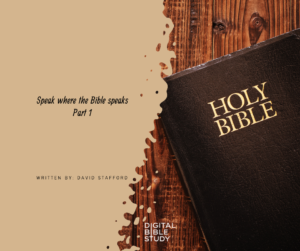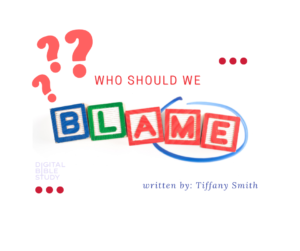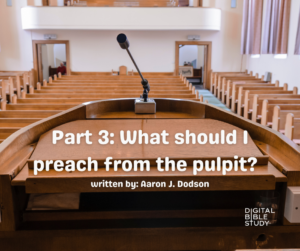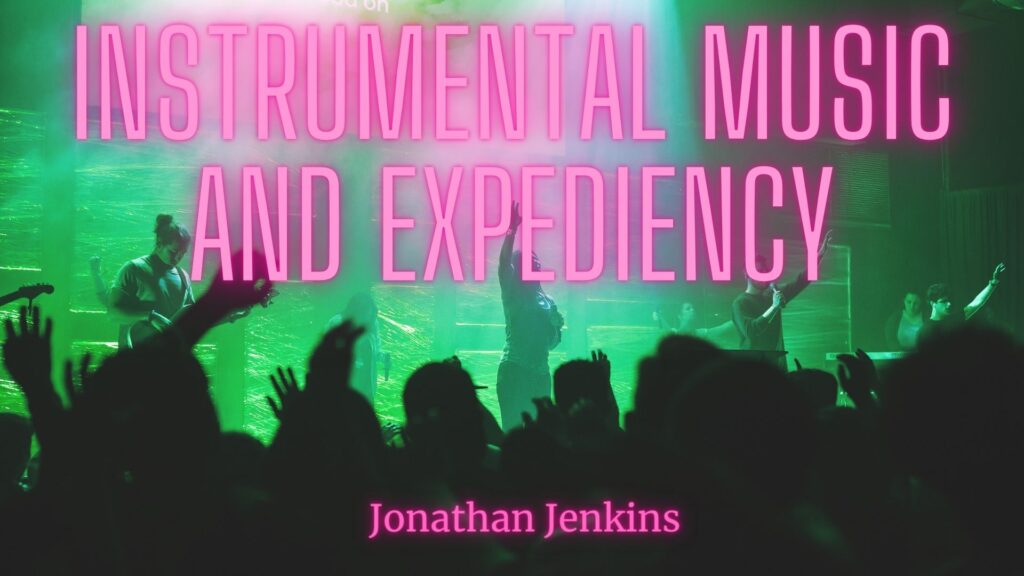Jonathan Jenkins
Recently, I was presented with an article which defended the use of musical instruments in the worship assembly. In this article, the claim was made that the instrument is authorized under the principle of expedience. The author wrote:
What these proof-texters fail to perceive, however, is that the specificity of Scripture excludes and prohibits only that which would negate, replace or invalidate that which is specified. It does not prohibit or exclude anything which would merely aid or accompany one’s compliance with that which is specified. This is just common sense, as well as a valid principle of interpretive logic [all emp. original – jj].[1]
After listing a series of “aides” to singing he concludes his line of reasoning by saying:
In all of these cases, however, singing still occurs – [emp. original – jj]. The “command” is NOT negated or replaced or diminished or invalidated in any way at all (although, in reality, no commands are given in the Ephesian and Colossian passages with respect to singing; in fact, the passages are not speaking of a “worship service” at all, and the statement about us “singing and making melody in our hearts” has GOD as the audience, NOT our fellow believers. . .).[2]
In his view, the instrument aides the singing and does not “negate, replace or invalidate” the act of singing.
As I reviewed the article, I began to do what I have always done in the past when presented with this approach. I started to craft a response to the person who had shown me the article. As I did so, it finally clicked with me that I was doing something that I promised myself I would never do. I was responding to a pointless argument.
What Would It Take?
I love vigorous Bible discussions. I believe that open discussion and debate about God’s word is the surest path to finding truth. But I hate pointless Bible bickering. I had a professor who would often say, “There is a difference between proving something and proving something to someone.” It took me far too many years to appreciate that truism, but I am getting better at it. As a result, I instituted a practice that I try to place near the front-end of every Bible discussion. While the phrasing of the question changes in each situation, I always ask, “If I prove ___________, would it change your position?”
Too often, we are debating a matter that is sub-point twelve on a person’s interpretative model and the first eleven will not allow a person to change their viewpoint on the twelfth. In my experience, we rarely discuss the foundational principle that is the real line of demarcation between two positions. For example, when we are asked “Are members of the church of Christ the only ones who are going to heaven,” that question is far from the root issue. If one were to answer that question as precisely and articulately as possible with human language, the querist (most often) would simply pivot and ask a different question about the nature of the church or some other related topic. In other words, their question was framed in such a way that even answering it perfectly stands no chance of falsifying their belief that a group outside of the church of Christ is also saved. It is a question designed to put an opponent on the defensive or, at least, to be a distraction from the main dispute.
I believe this principle is squarely behind the reason proponents of instrumental music in churches of Christ appeal to expediency. It is an argument that costs them nothing and attempts to paint us into a semantic corner. Once we accept the premise that we need to provide an answer to their assertion that the instrument is an expedient, conveniently for their purposes, we place ourselves in the position of arguing that the instrument is not an expedient and/or that there is some logical difference between differing types of expediencies.
At that point, the proponent of the instrument knows he has won the debate no matter the specifics of the outcome.
Read the Room
Have you ever attended a religious debate? Or watched a political debate? The perceived winner is most often declared such with little regard to the superiority of his facts and argumentation. Masses of people do not make value judgments about polemic encounters logically – they make them intuitively. They judge the messenger and his competence. Audiences also measure the message on which one just feels right and makes the most sense. One person in a thousand might be qualified to determine the factual impact of a three percent change in marginal tax rates. It is the debater who frames his argument in a way that harmonizes with the intuition of the audience that carries the room – not necessarily the one who is demonstrably right about tax rates.
The same is true about the debate over the instrument. Preachers and academics debate the nuances of differing Bible passages – most people do not care about those details. In fact, most members of the church already have their minds set on this issue. But there is a crowd that can be swayed and moved to another position.
For those of us who opposed the use of the instrument, we have a significant problem. Our problem is that people’s experience in nearly every field is that music has instrumental accompaniment. Secular music is almost always with instruments. So is popular Christian music. Instruments appear in most places of worship. Whether a member of the church of Christ has come out of a denominational background or has come straight from the secular world, that person’s expectation is that music uses instruments. That means the intuition of our audience is fixed against us in the debate.
When we accept the expedient premise the progressives present us, we have locked ourselves into a position where we are denying the experience of our audience and appear to be parsing words to make an argument about grammar. The progressives know we believe in the principle of expedience. We justify the use of song books, pitch pipes, and projection systems based on that principle. But then we deny that the instrument is an “expedient” to singing. We called it an addition.
What does the audience hear in the debate? It hears inconsistency. Our argument sounds contrived. It contradicts their own experience. The singing they have done for their entire life has been helped by instruments of music. Now, we are compelled to convince them that their perception contradicts reality. It is a tough sell. The progressive has placed us in exactly the right position to sway the undecided in our congregations.
Understand, my point is not about the merit of that distinction. Evaluating the merit requires an investment of disciplined, educated, and logical thought. The distinction is not intuitive. The audience we are trying to persuade learned to sing with instrumental accompaniment. They took chorus in school. They sang along with the radio in the car. Trying to convince them that the instrument is not (or is more than) an expedient is a daunting task.
In the Red Zone
The “Red Zone” in football is the area of the field where the team on offense is close to the opponent’s goal line. That is precisely where the progressive’s use of the expedience argument places them. It allows them to play on our end of the field and exposes their side to little or no threat. Once we engage them on it, we are burdened with all the complexities of argumentation. It is we that must demonstrate our logical consistency in properly identifying all expedients (and since we do not all agree on that list, it can be problematic). We are the ones that must defend the objective difference between an expedient and an addition. Yet, if we do concede that the instrument expedites singing, we then pick up the burden of explaining the interplay between an item’s ability to expedite and then also “add to” God’s commands.
Meanwhile, the progressive has nothing to explain. The reason for that is simple. He does not believe the concept of expediency is the basis of the instrument’s use in worship.
All-Purpose Expedient
If the instrument is an expedient to singing, then during which part of the worship would it be played? That is obvious – it would be played, well, when people are singing. True, when churches sing the instrument is played.
However, is that the only time it is used? In my experience, no. It is used to call the church to worship. You will hear the instruments played low during prayers. The Lord’s Supper is often partaken with instrumentation in the background. During the sermon, especially during the preacher’s altar call, the melodies of the band are heard. Once instrumentation is brought into a church’s worship, it begins to be used in every part of the service.
Progressives argue the use of the instrument is authorized to expedite singing. Notably, they never take the time to prove the case that the instrument expedites praying, communion, and preaching. Wonder why that is? Again, the answer is simple. The principle of expediency is not the true basis for their use of the instrument.
Bait and Switch
The progressive appeal to expedience allows them to hide the true basis of their accepted justification of the instrument’s place in worship. While never stated, the instrument’s connection to expediting singing is not the reason the instrument is in the worship. As we stated earlier, in response to the question, “Are members of the church of Christ the only ones who are going to heaven,” if you were able to craft the most humanly possible precise and articulate answer, would that (in most cases) change the mind of the querist? It is doubtful that your answer would accomplish so much. The reason is that the querist’s point of contention is not tied to the question.
The same is true over the expedience of the instrument. If your precise, articulate argument about the instrument’s expeditious nature in relation to our singing were presented to the progressive, would it change his mind? Probably not. Your argument would not address his use of it during prayers and preaching. No, he would simply pivot to another point entirely.
Return with me to the quote used in the opening of this article. Notice what is stated in the parenthetical statement at the quote’s end:
[A]lthough, in reality, no commands [emp. original – jj] are given in the Ephesian and Colossian passages with respect to singing; in fact, the passages are not speaking of a “worship service” at all, and the statement about us “singing and making melody in our hearts” has GOD as the audience, NOT our fellow believers. . .[3]
While we who opposed the use of the instrument are dutifully answering the question of the expedience of the instrument, this author does not believe the verses in question (Ephesians 5:18-19; Colossians 3:16-17) have any commanding authority over our worship anyway. So why are we even attempting to respond to this line of thinking? If Ephesians 5 and Colossians 3 give no command about singing in worship, how then can they be used to supply the basis of the expedient nature of the instrument while we are singing in that worship?
This is the truth behind the position being espoused among churches of Christ. If you could craft that perfectly precise, articulate argument about expediency, your progressive opponent would simply pivot to another argument. Like above, he may argue that your “proof-texts” do not have anything to do with worship at all. The whole expedience argument is just a classic “Bait and Switch.”
Conclusion
We who oppose the instrument in worship must do a better job of having this argument in the progressive’s “Red Zone.” They claim to believe that the Bible does authorize things by command. They claim to believe in the principle of expedience. We must make them answer at least the following questions:
- What command does the use of the instrument in worship fulfill?
- If not Ephesians 5 and Colossians 3, which passage(s) provide the command for us to sing in our assemblies?
- What command (if not Ephesians 5 and Colossians 3) is expedited by the use of the instrument?
- What command does the use of the instrument during prayers, communion, and the Lord’s Supper fulfill?
- How does the use of the instrument expedite the command to pray, partake of the communion, and preach?
It is time for us to acknowledge that we are responding to an argument that has no connection to the foundational issue. The progressive is not using the instrument in worship because it expedites Ephesians 5 and Colossians 3. He is using it for other reasons. We must make him declare those reasons. When our dispute is focused on expedience, he is on the offensive and we are defending. The optics of that struggle are against us no matter how strong our case is. The audience witnessing our polemic battle wants to agree with his position. If we play on our end of the field, we lose no matter how good our argumentation is. Answering his assertions that Ephesians and Colossians provide justification for instrumentation during the assembly moves us not one yard closer to his end of the field. He is living in our “Red Zone.”
If we can compel him to state his case about the use of the instrument, we can move to his end of the field. People who believe the instrument is allowable do not just believe it is allowable when singing. They use it throughout the entire service. Let them explain the textual basis for what their actual practices are. There is no logical connection between instrumentation and praying or preaching – none. We must make them defend that action. It will destroy the expedience argument and highlight for those who are swayable in our audience the progressive’s true attitude toward Bible authority.
There is an adage that stays that the aggressor sets the terms of the conflict. For too long, they have been the aggressor. They speak openly and loudly on this topic. We no longer do. It is time to reclaim the field.
[1] Al Maxey, “Silence Before the Bench,” September 16, 2010, https://www.zianet.com/maxey/reflx456.htm (accessed January 13th, 2022).
[2] Maxey, “Silence Before the Bench,” https://www.zianet.com/maxey/reflx456.htm.
[3] Maxey, “Silence Before the Bench,” https://www.zianet.com/maxey/reflx456.htm.

Are We Speaking Where the Bible Speaks? Part 1
There is an important question that needs to be addressed, and that question is “Are we speaking where the Bible speaks?”

Who should we blame?
We are to blame for our own sins. It is not alway easy to choose the righteous path, but we should seek to pick the righteous paths rather than the sinful, the self-serving.

Part 3: What Should I preach from the pulpit
Dear preacher, don’t allow others to prevent you from teaching the whole counsel of God!


Fascinating points. This is something I will be thinking long and hard about. Thank you.
such a sobering read! bro Jenkins, perhaps u might consider a workshop to teach us questioning and response techniques based on what you outlined. thanks!